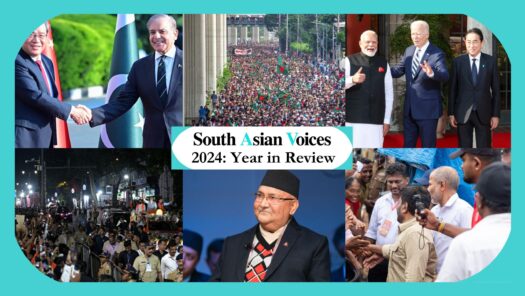Sri Lanka
Return to article
श्रीलंका की विदेश नीति का पुनर्मूल्यांकन? दिसानायके का युग
सितंबर 2024 में, गंभीर राष्ट्रीय आर्थिक संकट प्रारम्भ होने के दो वर्ष के उपरान्त, श्रीलंका में राष्ट्रपति के रूप में अनुरा कुमारा दिसानायके के चुनाव के साथ राजनीतिक परिदृश्य में एक महत्त्वपूर्ण परिवर्तन देखने को मिला| पारदर्शिता और सुशासन की…

A Recalibration of Sri Lanka’s Foreign Policy? The Era of Dissanayake
In September 2024, two years after a severe national economic crisis began, Sri Lanka witnessed a significant shift in its political landscape with the election of Anura Kumara Dissanayake as president. Lack of transparency and good governance had resulted in…

2024: Year in Review
2024 was a year of domestic upheaval and economic challenges for many countries in the subcontinent. It was also a year of political transition, as seen in Sri Lanka, Nepal, and Pakistan, and continuing to deal with the impacts of…

Sri Lanka in 2024: Political Realignment and the Road Ahead
In 2024, Sri Lanka conducted both presidential and parliamentary elections that realigned its political order. By any measure, the election of President Anura Kumara Dissanayake (popularly known as AKD) in September and the landslide legislative victory for his coalition in…

Vision Versus Reality: The Promise of India-Sri Lanka Connectivity
After the recent presidential victory of Anura Kumara Dissanayake in Sri Lanka, Indian Prime Minister Narendra Modi was one of the first world leaders to congratulate him, expressing the hope of working together to enhance the multifaceted cooperation between the…

A New Era in Sri Lanka?: Implications of Dissanayake’s Presidency
Anura Kumara Dissanayake, leader of the leftist National People’s Power (NPP), rode a popular anti-establishment vote to power in last weekend’s Sri Lankan presidential election. The election, the first to be held at any level in the country since 2020,…